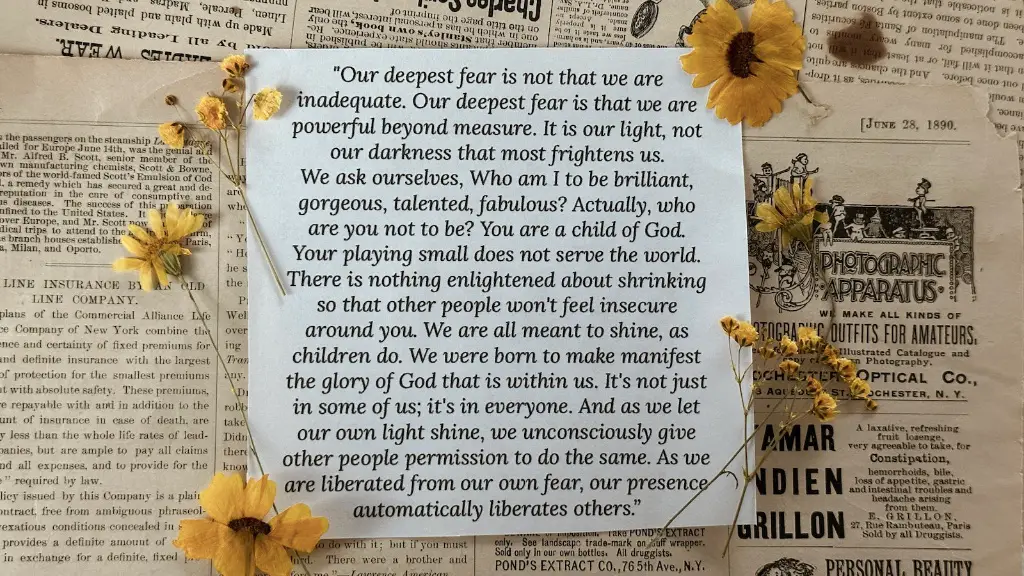John Stuart Mill was one of the most influential philosophers of the nineteenth century. He was an advocate for social justice and championed the rights of individuals. He is also well known for his writings on the subject of poetry. His views on poetry were deeply rooted in his understanding of classical philosophy, which had a profound influence on Mill’s thought. In this article, we will explore Mill’s analysis of poetry in greater detail, as well as its relevance to twenty-first century culture.
Mill believed that poetry was an expression of the poet’s creative spirit, and an opportunity to provide moral and intellectual guidance. He believed that by engaging with poetry, an individual could gain insight into their own moral and philosophical views. He argued that great poetry should challenge the reader to question their values in order to gain a deeper understanding of their own beliefs.
For Mill, the purpose of poetry was to provide the reader with a sense of beauty and transcendence. He argued that the beauty of poetry comes from the poet’s ability to combine words in a way that can evoke strong emotions in the reader. He believed that through the beauty of poetry, readers could experience a unity of feeling that transcends the everyday world and gives them a glimpse of something higher and more profound. This sense of beauty, he argued, was essential in order for the poet to be able to convey their message clearly and effectively.
Mill also argued that poetry plays a critical role in social progress and evolution. He argued that poetry can provide individuals with an opportunity to focus on their creative and spiritual sides, which are essential for social progress to take place. He argued that poetry can be a powerful tool for inspiring people to explore ideas and values that may lead to positive social change. The power of poetry, he argued, should not be underestimated.
Though Mill’s views on poetry are rooted in classical philosophy, they are still relevant today. In an increasingly competitive and technological world, it is more important than ever to take the time to appreciate the beauty and insight that poetry can provide. In an age where the power of words has been diminished, poetry can still provide a powerful form of self-expression and enlightenment. It is a unique tool that can be used to help individuals to make sense of the world around them.
Strength Of Poetic Imagery
Mill argued that poetry is especially powerful due to its ability to create strong visual imagery. Through the use of metaphor and simile, poets are able to create vivid and memorable images in the mind of the reader. This visual imagery can help the reader to understand the message of the poem in a deeper and more meaningful way. By connecting the images of the poem with the ideas that are being expressed, readers can gain a more holistic understanding of the poem and its message.
The visual power of poetry can also be a highly effective tool for conveying complex messages. A single well-chosen metaphor or phrase can provide an immediate and striking insight into a particular concept or feeling. The poetic image can also be used to evoke certain feelings that are difficult to explain in words. The combination of image and emotion can be particularly effective in conveying a particular idea or point of view.
Mill argued that poetry can also be used to provide the reader with an opportunity to explore their own thoughts and feelings. Through the use of poetic imagery, readers can explore their own values and beliefs in a way that is more personal and intimate. By engaging with a poem, readers can gain insight into their own attitudes and behaviors, which can open them up to new perspectives and possibilities that they may not have been able to access before.
Modern Poetry As Expressions of Emotion
Mill argued that poetry provides a powerful form of self-expression and emotional catharsis for its readers. He argued that by engaging with poetry, an individual can gain insight into their own feelings and experiences in a way that is far more powerful than simply explaining them in words. Poetry provides an opportunity to explore and understand one’s feelings in a way that is more creative and inspiring.
Mill argued that great poetry should be truthful and authentic. He believed that the most powerful poetry is that which comes from the deepest parts of an individual’s soul and expresses their true emotions and beliefs. He argued that when an individual is able to express their true feelings and emotions through poetry, they can reach an understanding of the world that is far deeper than what can be achieved through merely rational thought.
Today, modern poets have continued to use poetry as a means of expressing their innermost feelings and beliefs. The modern poet is often experimenting with new forms and styles of poetry in order to find new ways of expressing their emotions and beliefs. By engaging with this modern poetry, readers can gain unique insight into the world and its complexities.
Conclusion
John Stuart Mill’s views on poetry offer a powerful insight into the power of the poetic form. He argued that poetry can provide the reader with an opportunity to explore their own beliefs and feelings and gain a deeper understanding of the world around them. Mill’s views are still relevant today and offer a powerful reminder of the importance of engaging with poetry in order to gain a more holistic and meaningful understanding of the world.
Poetic Devices
Mill believed that great poetry requires a masterful understanding of poetic devices. He argued that devices such as alliteration, simile and metaphor can be used to create powerful imagery and emotion in the minds of readers. Through the use of poetic devices, poets can evoke strong emotions and feelings that may be difficult to express in words. The effectiveness of these devices lies in the poet’s ability to select words that evoke particular feelings and emotions in their readers.
The use of poetic devices can also be used to create subtle meaning or depth in a poem. For example, the use of metaphor can be used to convey complex ideas or feelings in a brief and powerful way. Poets can also use devices such as alliteration or rhyme in order to draw the reader’s attention to specific words or phrases and give them added meaning.
Finally, poetic devices can be used to create a strong sense of rhythm in a poem. This can help the poet to convey their message in a more effective and powerful way. By creating a sense of rhythm and structure in the poem, a poet can ensure that the reader is able to understand the poem’s message clearly and deeply.
Role Of Poetry In Society
Mill argued that poetry plays a critical role in society by providing individuals with an opportunity to explore their innermost feelings and beliefs. He argued that poetry can allow people to express themselves in a way that is more honest and authentic than traditional modes of communication. Furthermore, poetry provides an opportunity for people to connect with their emotions and explore them in a deeper and more meaningful way. By engaging with the beauty of poetry, individuals can gain insight into their own values, beliefs, and attitudes.
Mill also argued that poetry can be a powerful tool for social change and progress. By providing individuals with an opportunity to explore their own beliefs and values, poetry can serve as a catalyst for change. Through its beauty and insight, poetry can help to spark dialogue and debate that can ultimately lead to greater understanding and social progress.
Finally, poetry can provide individuals with an opportunity to engage with their spiritual side. By engaging with great poetry, individuals can experience a sense of beauty and transcendence that can be deeply inspiring and nourishing to their soul. By taking the time to appreciate and engage with the power of poetry, individuals can gain a greater understanding of the world around them and of their own place in it.
Poetry And Education
Mill argued that the power of poetry can be a valuable tool for enhancing education. By engaging with great poetry, individuals can gain insight into their own moral and philosophical views. Furthermore, poetry can provide an opportunity for students to explore their own feelings and gain a deeper understanding of the world around them. This can provide students with a more holistic and meaningful understanding of the world that is far more powerful than the teaching of facts and figures.
Mill argued that great poetry should be included in the classroom in order to provide students with a deeper understanding of the world. He argued that students should be encouraged to explore the power of poetry and to experience its beauty and insight. By engaging with great poetry, students can gain a more meaningful and enriching understanding of the world around them.
Today, poetry is still seen as a powerful tool for education. Teachers are encouraged to introduce poetry into the classroom in order to provide students with an opportunity to gain a greater understanding of the world and of their own attitudes and beliefs. By engaging with great poetry, students can gain a more meaningful and enriching understanding of the world and of their own place in it.
Tone in Poetry as a Marker of Meaning
Mill argued that the tone of a poem often plays a critical role in conveying its message. He argued that by carefully selecting the words and phrases that are used, the poet can create a tone that can evoke a range of emotions in their readers. By engaging with the subtle nuances of poetic language, the poet can create a tone that is distinct and meaningful.
The power of tone to evoke emotion and create meaning in a poem is oftentimes overlooked. In order to truly appreciate the power of a poem, readers must take the time to explore the nuances of its tone. Through careful exploration, readers can develop an appreciation of the unique emotional power of the poem and gain a deeper understanding of its message and meaning.
Today, poets are still exploring the power of tone in poetry. By experimenting with language and subtle shifts in tone, modern poets are striving to create new meanings and ideas that are often difficult to express in words. Through their exploration, poets can provide readers with an opportunity to engage with something that is more meaningful and profound.





